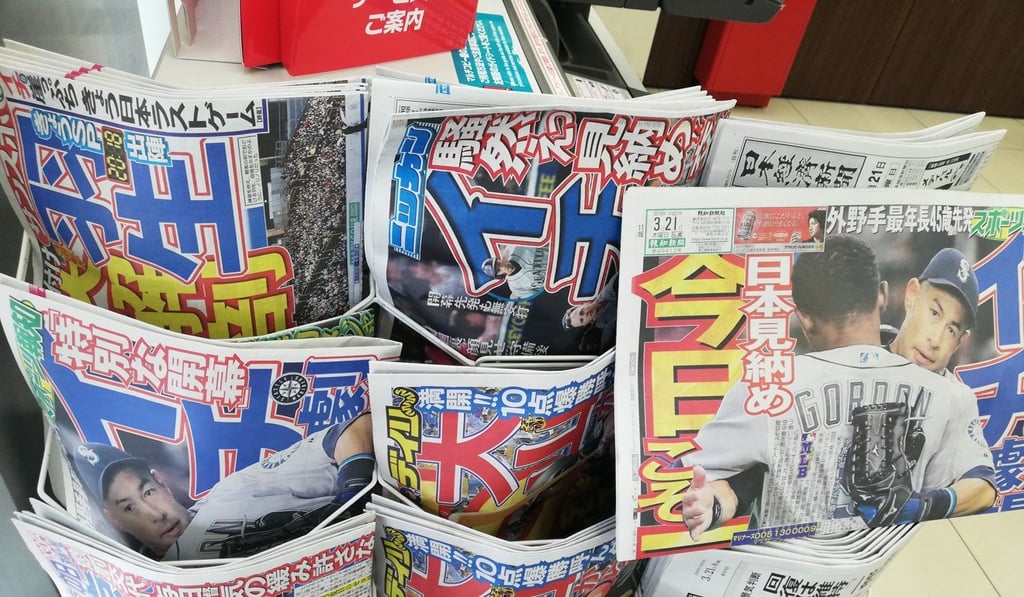Japan’s tabloid media accused of racism towards South Korea as tourism dives
- A Japanese newspaper has accused the nation’s tabloid media of racism in its coverage of the country’s ongoing diplomatic spat with South Korea
- This comes as the number of South Koreans visiting Japan in August dropped by nearly a half since last year

The editorial, published on Tuesday, said the paper welcomes “the active debate on Japan’s diplomacy with its neighbour”. It added, however, that many tabloid news magazines “seem to be trying to stir up hatred toward South Korea”.
This comes as the number of South Korean visitors to Japan tumbled by 48 per cent in August compared to a year earlier. South Koreans accounted for a quarter of foreign tourists to Japan in 2018, ranking second after China in terms of number and spending. But it has now dropped to third place after the mainland and Taiwan, with Hong Kong at fourth place. The dispute has even prompted some airlines to suspend services connecting the two countries.

Asahi picked out a number of headlines which have grabbed attention in recent weeks, including a series of articles run by the Shukan Post earlier this month titled “Goodbye to our annoying neighbour: Why we don’t need South Korea”.
The monthly magazine WiLL published a feature with the headline “Countdown to South Korea’s disappearance in 202X” which suggested Seoul’s present economic and political problems are the precursors to the nation’s doom within the next decade.